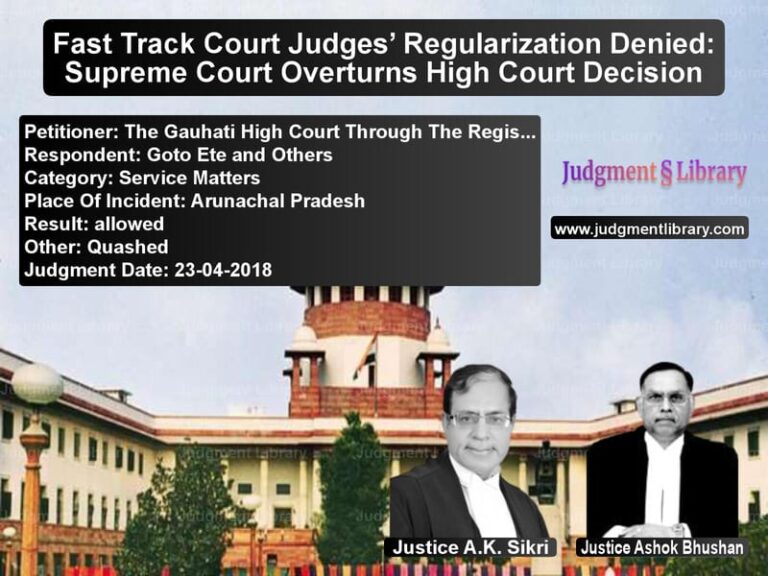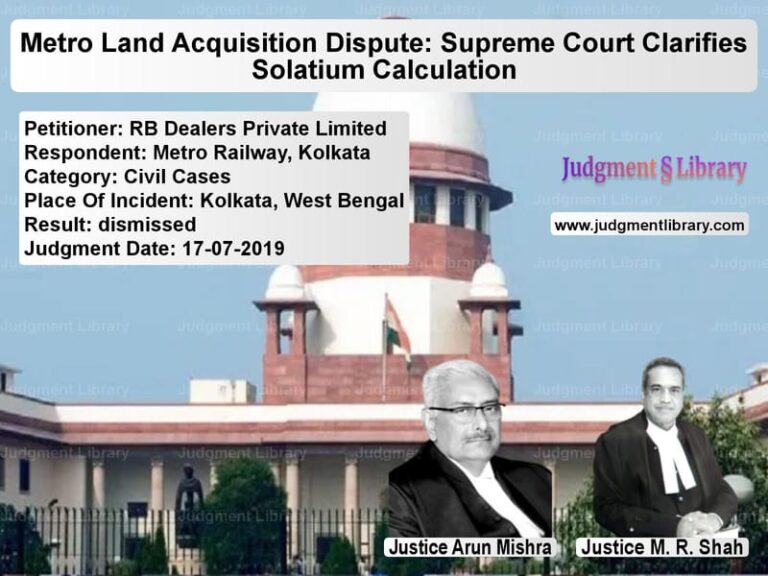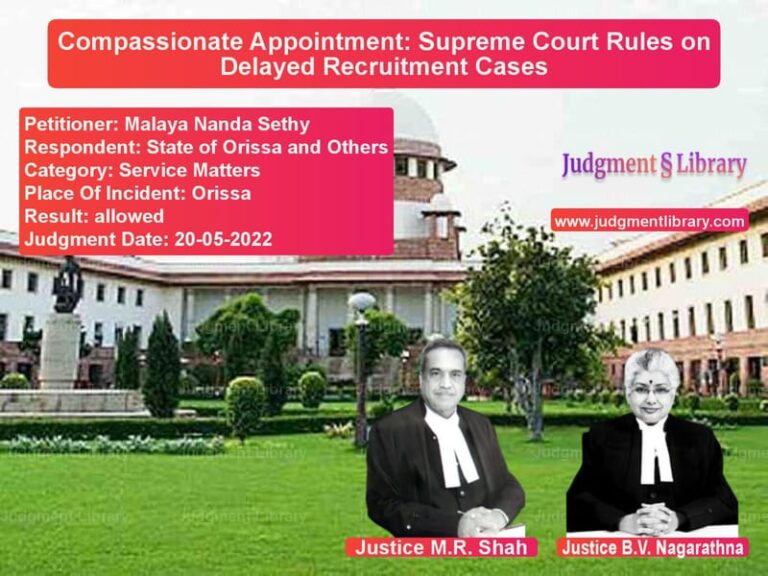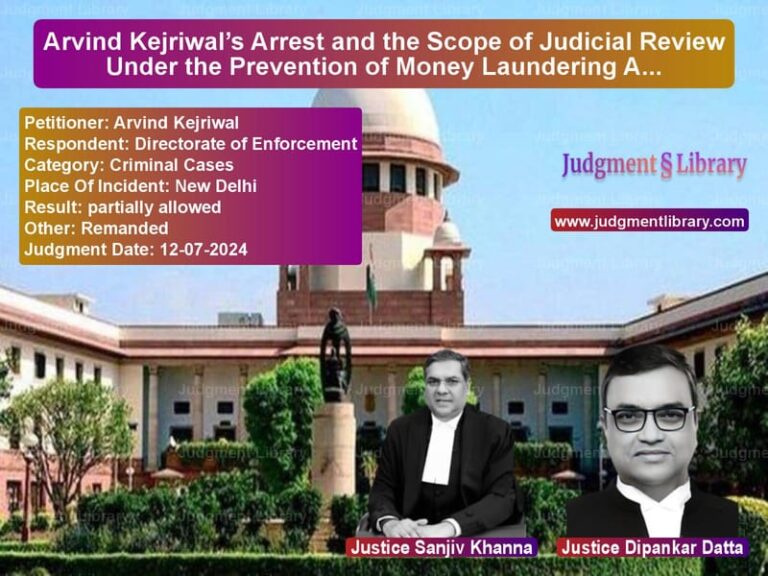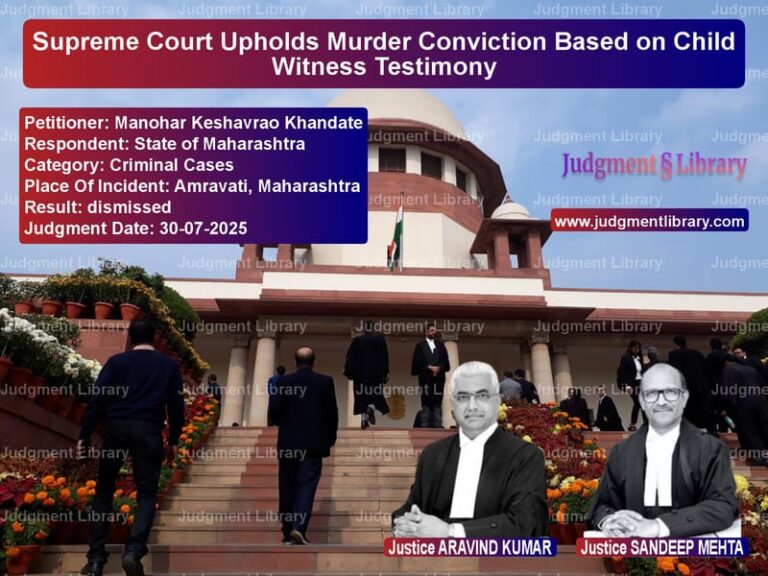Disability Pension in Armed Forces: Supreme Court Sets New Precedent
The Supreme Court of India recently delivered a landmark ruling regarding the entitlement of disability pension for armed forces personnel. The case, The Secretary, Government of India & Others v. Dharambir Singh, revolved around whether an injury sustained while on casual leave could be considered attributable to military service, thereby making the individual eligible for disability pension.
Background of the Case
Dharambir Singh, the respondent, joined the Territorial Army on December 28, 1981, and was discharged on December 13, 1999, after serving for 17 years and 225 days. While on two days of casual leave from his posting in Jalandhar Cantt, he suffered a severe accident while riding a scooter. The injuries led to a permanent disability, assessed at 30% by a medical board.
A Court of Inquiry (COI) was conducted to investigate the accident, and the Brigade Commander found the injuries to be attributable to military service. However, the Medical Board ruled otherwise, stating that the injury was neither attributable to nor aggravated by military service. Based on this, his claim for disability pension was denied. He then appealed to the Armed Forces Tribunal, which ruled in his favor. The Government of India challenged this decision in the Supreme Court.
Arguments of the Appellants (Government of India)
The government, represented by its counsel, made the following arguments:
- Although a personnel on casual leave is considered ‘on duty,’ there must be a causal connection between the injury and military service.
- Dharambir Singh was going to purchase electrical goods for his sister when the accident occurred, which was a private act unrelated to military duty.
- The Medical Board’s decision should prevail over the findings of the Court of Inquiry.
- The Tribunal erred in granting disability pension without considering the causal connection principle.
- Recent Supreme Court judgments, such as Union of India v. Vijay Kumar and Renu Devi v. Union of India, had ruled that injuries sustained during personal activities on leave do not qualify for disability pension.
Arguments of the Respondent (Dharambir Singh)
The respondent’s counsel, Mr. Rajesh Sehgal, countered with the following arguments:
- The injury occurred while the respondent was on casual leave, which is considered duty for the purpose of pension regulations.
- The COI had already concluded that the injuries were attributable to military service, and its findings should be final.
- The respondent was not engaged in any unlawful or unmilitary activity at the time of the accident.
- Previous cases, such as Madan Singh Shekhawat v. Union of India and Barkat Masih v. Union of India, had established that injuries sustained during leave should be treated as service-related.
- The Medical Board erred in rejecting his disability pension claim without considering the COI’s findings.
Supreme Court’s Analysis
1. Definition of ‘On Duty’
The Court analyzed various provisions under the Army Act, 1950, the 1982 Entitlement Rules for Casualty Pensionary Awards, and relevant leave rules. It concluded that a personnel on casual leave is generally treated as on duty. However, this does not automatically mean that every injury sustained during leave is attributable to military service.
2. Need for Causal Connection
The Court emphasized that merely being on duty at the time of an accident does not suffice. There must be a clear link between the injury and military service. In this case, the accident occurred while the respondent was engaged in a personal errand, with no connection to military duties.
3. Role of the Court of Inquiry vs. Medical Board
While the Court acknowledged the COI’s findings, it clarified that determining whether an injury is attributable to service is the prerogative of the Medical Board. The COI examines the circumstances of the incident but does not assess medical causation. Hence, the Medical Board’s ruling takes precedence in pension cases.
4. Applicability of Past Precedents
The Court distinguished this case from previous rulings, such as Madan Singh Shekhawat, noting that in those cases, the injuries had a direct link to military service. The Court reiterated the principles laid down in Union of India v. Vijay Kumar, where an injury sustained during personal activity was deemed ineligible for disability pension.
Final Judgment
The Supreme Court ruled in favor of the Government of India, setting aside the Armed Forces Tribunal’s order. The judgment stated:
“There must be a clear causal connection between the injury and military service. The mere fact that an individual is on casual leave does not automatically entitle them to disability pension unless the injury is directly related to service obligations.”
The Court held that Dharambir Singh’s injury did not arise from military service and, therefore, he was not eligible for disability pension.
Implications of the Judgment
This ruling clarifies several important principles regarding disability pension eligibility in the armed forces. Key takeaways include:
- Personnel on casual leave are considered on duty but must prove a causal link between their injury and military service to qualify for disability pension.
- The Medical Board’s opinion holds greater weight than the Court of Inquiry in determining medical causation.
- Activities unrelated to military duties, such as personal errands, do not qualify for disability pension.
- The judgment provides a clear precedent for future cases involving injuries sustained during leave.
The Supreme Court’s decision reinforces the need for a direct link between military service and injury, ensuring that pension benefits are granted based on well-defined criteria.
Petitioner Name: The Secretary, Government of India & Others.Respondent Name: Dharambir Singh.Judgment By: Justice L. Nageswara Rao, Justice Hemant Gupta.Place Of Incident: Jalandhar Cantt, Punjab.Judgment Date: 20-09-2019.
Don’t miss out on the full details! Download the complete judgment in PDF format below and gain valuable insights instantly!
Download Judgment: The Secretary, Gover vs Dharambir Singh Supreme Court of India Judgment Dated 20-09-2019.pdf
Direct Downlaod Judgment: Direct downlaod this Judgment
See all petitions in Pension and Gratuity
See all petitions in Disciplinary Proceedings
See all petitions in Judgment by L. Nageswara Rao
See all petitions in Judgment by Hemant Gupta
See all petitions in dismissed
See all petitions in supreme court of India judgments September 2019
See all petitions in 2019 judgments
See all posts in Service Matters Category
See all allowed petitions in Service Matters Category
See all Dismissed petitions in Service Matters Category
See all partially allowed petitions in Service Matters Category


